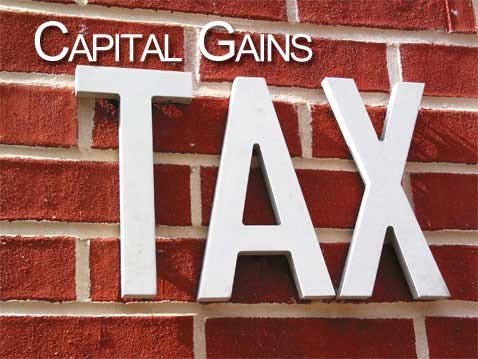What You Need To Know About Capital Gains And Taxes
Post on: 11 Июнь, 2015 No Comment

A crucial element of investing is managing how much tax you will owe on your gains. Taxes are sometimes overlooked or considered after the fact, but capital gains (depending on the security type and holding period) can have a big impact on investment results. Different types of capital gains are taxed at different rates. This needs to be taken into account when making investing decisions. The following is a quick guide to the different types of capital gains, and what needs to be taken into consideration when making future investment decisions.
Taxation and Equities
Capital gains on equities are divided into long-term and short-term gains. In U.S. equities, long term and short term are distinguished by whether the investor has held the stock for more or less than one year. Long-term capital gains are taxed at a lower rate than short-term gains. This is to provide more incentive to invest in the companies that build the economy, rather than trying to make quick profits by speculating on stocks. It brings to mind Warren Buffett’s philosophy: to invest in good companies for the long haul. This is in contrast to the notion of buying a stock with the simple hope of selling it to someone else in a few months (or even days) at a higher price.
The application of the rule is not set in stone, though, so this is important to take into account when putting in a sell order. In the U.S. during the George W. Bush presidency, short-term capital gains (gains on stocks held less than one year) were taxed as regular income rates, while long-term capital gains were taxed at no more than a flat 15%. This could have a big impact on profits.
Taxes on capital gains also need to be separated from taxes on dividends from investments. Dividends on a stock are distributions of a company’s earnings. These distributions to investors have separate tax laws applied to them, but during the 2000s, qualified dividends have been taxed at no more than a 15% rate. For individuals, common and preferred stock is taxed in the same way with respect to both capital gains and dividends.
Taxation and Bonds
Taxation on gains from bonds share some characteristics with stocks, but also many differences. If an investor buys a bond at par value and holds it to maturity. there will be no capital gain on the transaction. However, if an investor sells before maturity and generates a profit from the bond, then there is a capital gain, either short-term or long-term, the same as with a stock.
The big difference with bonds is the coupon (interest) payments that are paid to bondholders. These seem similar to dividends — both are commonly quoted in yields of the security price — but interest on bonds is taxed very differently depending on the type of bond. Interest payments on corporate bonds are subject to both federal and state taxes. Interest payments on federal bonds are subject to federal taxes, but not state tax.
Municipal bonds are the real winner in the taxation game. Interest payments on qualifying municipal bonds are not subject to any federal, state or local taxes, and are often deemed triple tax-free. The dollars an investor receives in interest from a municipal bond are the dollars that he or she can put in the bank. This factor must be considered when looking at yields in the markets. The market adjusts these yields so that municipal bonds generally pay lower yields than comparable taxable bonds, but a high-tax-bracket investor may be better served by sticking with tax-exempt issues. (For more on the tax issues surrounding these investments, see Why Retirees Can’t Count On Municipal Bonds .)
Taxation and Mutual Funds
Mutual funds and other funds deserve some special considerations. Shares of the fund act the same in terms of short-term and long-term capital gains as stocks and bonds. Dividends or interest that is passed through is taxed, as it would be normally. The main difference is with the fund’s internal capital gains. If the fund distributes capital gains from its underlying investments, the investor’s gain at the fund manager’s whim. A taxable investor would be better off waiting to invest if a mutual fund is about to make a capital gains distribution. (Get other tax tips about these investments at When To Sell A Mutual Fund .)
Offsetting Gains With Losses














